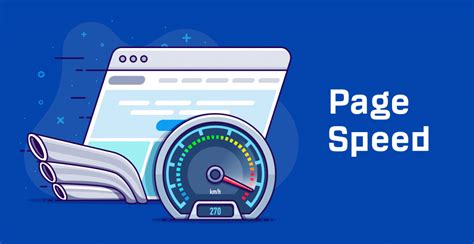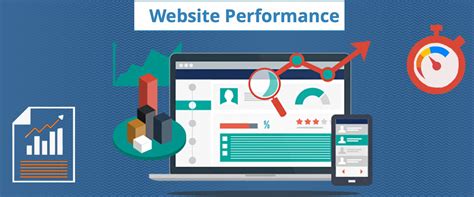Are you struggling to attract more visitors to your website? Want to improve your online visibility and climb the ranks on search engine results pages? Look no further! We've compiled a list of seven expert tips to help you optimize your website and enhance its search engine rankings, ultimately reaching a wider audience and achieving your goals.
1. Harness the power of targeted keywords: To stand out in a sea of online content, it's crucial to identify and implement relevant keywords throughout your website. These keywords should be strategically placed in your webpage titles, meta descriptions, headers, and content. By aligning your content with popular search terms, you increase the likelihood of attracting organic traffic.
2. Create high-quality, engaging content: Content is king, and it plays a vital role in improving your website's search engine rankings. Great content not only keeps visitors glued to your pages, but it also encourages them to share it with others. Ensure your content is unique, valuable, and well-researched, catering to your target audience's needs and interests.
3. Enhance your website's user experience: Search engines love websites that offer seamless user experiences. A well-designed website that is easy to navigate and loads quickly will not only satisfy your visitors but also attract search engines' attention. Optimize your website's layout, minimize unnecessary clutter, and provide easy access to the information your visitors are searching for.
Enhance your website's loading speed

In today's digital landscape, the speed at which your website loads plays a critical role in attracting and retaining visitors. Optimizing your website's loading speed can greatly enhance the user experience, reduce bounce rates, and potentially improve your website's search visibility.
When it comes to optimizing loading speed, there are various factors to consider. One essential aspect is minimizing the size of your website's files, including images, CSS, and JavaScript. Compressing these files helps reduce their size without compromising their quality, allowing for faster loading times.
| Utilize browser caching: | Enabling browser caching allows visitors' browsers to store certain elements of your website, such as images or CSS files, locally. This way, when a user revisits your website, their browser can load these cached elements instead of downloading them again, resulting in faster load times. |
| Minify your code: | Minification involves eliminating unnecessary characters, like whitespaces and line breaks, from your website's code. This process reduces the size of the code, making it more efficient for browsers to interpret and load, ultimately improving loading speed. |
| Optimize images: | Images are often the largest files on a webpage, so optimizing them is crucial for faster loading speed. Resize and compress images without compromising quality to reduce their file size. Additionally, consider using modern image formats, such as WebP, which offer superior compression and load faster. |
| Minimize HTTP requests: | Each element on your website, such as images, CSS, and JavaScript files, requires an individual HTTP request to be loaded. Minimizing the number of these requests, for example, by combining and minimizing CSS and JavaScript files, can significantly improve loading speed. |
| Choose a reliable hosting provider: | The performance of your website depends on the capabilities of your hosting provider. Ensure you choose a reputable hosting provider that can handle your website's traffic and offers fast server response times. A reliable hosting provider can contribute to faster loading speeds for your website. |
| Implement content delivery networks (CDNs): | CDNs distribute your website's files across multiple servers in various locations worldwide. When a visitor accesses your website, the CDN automatically serves the files from the server closest to their location. This reduces the distance the data needs to travel, resulting in faster loading times for users across the globe. |
| Regularly monitor and optimize: | Optimizing your website's loading speed is an ongoing process. Regularly monitor your website's performance using tools like Google PageSpeed Insights or GTmetrix. Identify any bottlenecks and areas for improvement, and make necessary optimizations to maintain optimal loading speed. |
By implementing these techniques to optimize your website's loading speed, you can create a seamless browsing experience for your visitors, increase user satisfaction, and potentially improve your website's search engine rankings.
Discover Effective Strategies for Keyword Research
One crucial step to enhance your website's visibility on search engine result pages is conducting thorough keyword research. By identifying the right keywords that align with your target audience's search queries, you can optimize your website's content and improve its chances of ranking higher in search engine rankings.
When conducting keyword research, it is essential to understand the phrases and terms that potential visitors might use when searching for information or services related to your website's topic. By diving deep into the world of keywords, you can uncover valuable insights and opportunities that can drive organic traffic to your website.
Start by brainstorming a list of potential keywords that are relevant to your website's niche. Consider using synonyms and related terms to expand your keyword options. Once you have a comprehensive list, leverage keyword research tools to analyze their search volume, competition level, and effectiveness.
- Utilize tools like Google Keyword Planner, SEMrush, or Moz Keyword Explorer to gain insights into the search volume and competition level of your chosen keywords.
- Look for long-tail keywords, which are more specific and have less competition, making it easier for your website to rank higher.
- Analyze your competitors' websites and identify the keywords they are targeting. This can provide valuable insights and help you discover untapped opportunities.
- Consider the intent behind each keyword. Are users searching for informational content, product reviews, or looking to make a purchase? This understanding will help you tailor your content to meet their specific needs.
Remember that keyword research is an ongoing process. Regularly revisit and update your keyword strategy based on changes in search trends and user behavior. By continuously optimizing your website's content with relevant keywords, you can improve organic traffic and increase your chances of ranking higher in search engine results.
Creating High-Quality and Relevant Content

One crucial aspect of enhancing your website's search visibility is by producing exceptional content that is both valuable and relevant to your target audience. By ensuring your content meets these criteria, you can significantly improve your chances of attracting organic search traffic and engaging users.
When it comes to crafting high-quality content, focus on delivering information that provides genuine value to your readers. This involves creating original, well-researched, and insightful content that addresses the needs and interests of your target audience. By offering unique perspectives, expert advice, or practical solutions, you can establish your website as a trusted resource.
Additionally, relevance is key in order to optimize your website's visibility on search engines. By understanding the specific topics, keywords, and phrases that resonate with your audience, you can tailor your content to match their needs. Take the time to conduct thorough keyword research and optimize your content by incorporating relevant terms naturally throughout your text.
Furthermore, structuring your content in a logical and organized manner is crucial for both user experience and search engine optimization. Use headings, subheadings, and bullet points to break down your content into manageable sections, making it easier for readers to navigate and comprehend. This not only enhances user engagement but also helps search engines understand the structure and relevance of your content.
While creating content, keep in mind that it should be visually appealing and easy to consume. Incorporate multimedia elements, such as images, infographics, and videos, to make your content more engaging and visually appealing. Remember to optimize these visuals with descriptive alt tags to improve their visibility in search results.
Lastly, regularly updating your content is vital to maintain its relevance and ensure it remains up-to-date with the latest information. Set aside time to review and refresh your existing content to provide accurate and current information to your audience. This demonstrates your commitment to delivering high-quality content and encourages search engines to crawl and index your website more frequently.
In conclusion, creating high-quality and relevant content is essential to improve your website's search visibility. By focusing on delivering value, maintaining relevance, enhancing readability, and staying updated, you can successfully attract organic search traffic and improve your overall search engine rankings.
Optimizing Metadata for Enhanced Online Visibility
Enhancing online visibility and driving relevant organic traffic to your website can be achieved by effectively utilizing metadata. Metadata refers to the data that provides information about other data, helping search engines understand the context and relevance of your web pages. To enhance your website's search engine rankings and improve its online presence, it is crucial to optimize your metadata.
1. Title Metadata: The title metadata, also known as the title tag, is displayed as the clickable headline in search engine results. Optimize it by using concise, keyword-rich phrases that accurately describe the content of the page.
2. Description Metadata: The description metadata, or the meta description, provides a brief summary of the webpage's content. Craft compelling and concise descriptions that entice users to click on your website in search engine results.
3. Keyword Metadata: Although the importance of keywords has evolved, including relevant keywords in your metadata can still provide additional context to search engines about your web pages' content. Use them thoughtfully and naturally, avoiding excessive keyword stuffing.
4. Structured Data Markup: Implementing structured data markup improves the way search engines understand and display your website's content. It allows you to provide additional information, such as business information, reviews, and product details, enhancing its visibility and user experience in search results.
5. Image Metadata: Images on your website should also have optimized metadata, including alt tags. Descriptive alt text not only helps search engines index your visual content but also improves accessibility for visually impaired users.
6. URL Structure: Creating clean and descriptive URLs with relevant keywords is essential for both users and search engines. A clear URL structure enhances user experience, boosts click-through rates, and aids search engines in understanding the page's content.
7. Localization Metadata: If your website serves a global audience or specific regions, consider implementing localization metadata. This helps search engines understand which countries or languages your content is targeting and improves its visibility in relevant localized search results.
By effectively leveraging metadata, you can optimize your website's visibility, improve its organic search rankings, and attract more relevant traffic. Remember to regularly monitor and update your metadata to keep up with evolving search engine algorithms and user preferences.
Enhance your website's visibility with high-quality backlinks

Boosting your website's online presence is essential for attracting more organic traffic and reaching a wider audience. One effective method to achieve this is by building high-quality backlinks.
Backlinks, also known as inbound links, are links that originate from external websites and point to your webpages. They serve as a vote of confidence from other sites, indicating their trust and credibility in your content. Building a strong network of backlinks plays a crucial role in improving your website's search engine visibility and increasing its chances of ranking higher in search results.
- 1. Create compelling content: Craft unique, valuable, and engaging content that others would naturally want to link to. When your content is informative, well-researched, and offers a fresh perspective, it becomes more likely to attract backlinks from authoritative sources.
- 2. Guest blogging: Collaborate with established websites within your industry and contribute guest posts. This allows you to showcase your expertise while earning valuable backlinks to your website.
- 3. Reach out for partnerships: Establish relationships with influencers, bloggers, and industry experts. Collaborate on projects, interviews, or product reviews, as these connections can lead to valuable backlinks.
- 4. Utilize online directories: Submit your website to relevant online directories and listings. Ensure that your business details are consistent and accurate across these platforms to maximize the impact of backlinks.
- 5. Monitor your competitors: Analyze the backlink profiles of your competitors and identify opportunities for acquiring backlinks from the same sources. This can help you establish a strong presence within your niche.
- 6. Social media promotion: Leverage the power of social media platforms to promote your content and engage with your audience. When your content gets shared on social media, it increases the chances of attracting backlinks from users and influential accounts.
- 7. Engage in community forums and discussions: Participate in relevant online communities, forums, and industry-specific discussions. Contribute valuable insights and include a link to your website when appropriate. This can help establish your authority in the field and generate backlinks from interested individuals.
Remember, building high-quality backlinks requires time, effort, and a strategic approach. Focus on creating valuable content and fostering relationships within your industry to attract reputable backlinks that will enhance your website's visibility and boost its search engine rankings.
Ensure Mobile Responsiveness
Enhance your website's adaptability to mobile devices for better user experience and increased visibility on search engines.
1. Optimize for Mobile: With a growing number of people accessing the internet through mobile devices, it is crucial to ensure that your website is optimized for mobile. This means designing a responsive layout that adjusts seamlessly to different screen sizes and resolutions.
2. Mobile-friendly Content: Tailor your website's content for mobile users by keeping it concise, clear, and easy to read on smaller screens. Use short paragraphs, bullet points, and headers to break up the text and make it more skimmable.
3. Speed and Performance: Mobile users expect fast-loading websites. Optimize your website's performance by minimizing file sizes, leveraging browser caching, and using a content delivery network (CDN) to ensure quick loading times on mobile devices.
4. Touch-friendly Navigation: Make sure your website's navigation is user-friendly on touchscreens. Use larger buttons and links that are easy to tap, and avoid small interactive elements that may be difficult to activate with a finger.
5. Avoid Flash and Pop-ups: Flash content is not supported on many mobile devices, so it's important to avoid using it. Additionally, pop-ups can be frustrating for mobile users, causing them to leave your site. Instead, consider using alternative methods for displaying important information.
6. Mobile Usability Testing: Regularly test your website across various mobile devices and platforms to ensure that it displays correctly and functions seamlessly. Identify and address any issues that may hinder the user experience on mobile.
7. Mobile SEO: Implement mobile-specific SEO techniques to improve your website's visibility on search engines. This includes optimizing your mobile content for relevant keywords, creating mobile-friendly meta tags, and submitting a mobile sitemap to search engines.
By prioritizing mobile responsiveness, you can provide a seamless browsing experience for mobile users, improve your website's visibility, and ultimately enhance your overall search engine performance.
Regularly monitor and analyze your website's performance

Ensuring the continual success of your online presence goes far beyond just creating a website. It's vital to regularly assess and evaluate how your website is performing to make informed decisions and drive improvements. By regularly monitoring and analyzing your website's performance, you can gain valuable insights into its strengths and weaknesses, identify areas for optimization, and effectively measure the impact of any changes implemented.
An essential aspect of monitoring your website's performance is tracking key metrics that gauge its performance in terms of visibility, user engagement, and conversion rates. These metrics can include organic traffic levels, click-through rates on search engine results pages, bounce rates, time-on-page, conversion rates, and more.
Utilizing analytical tools, such as Google Analytics or other similar platforms, allows you to collect and analyze data related to your website's performance. These tools provide comprehensive reports and valuable data on a range of metrics, helping you understand how users interact with your website and highlight areas that may require attention or improvement.
Regularly reviewing these performance metrics enables you to identify trends over time, such as seasonal variations or the impact of specific marketing campaigns. This data-driven approach empowers you to make informed decisions about your website's content, design, and marketing strategies, ultimately leading to enhanced user experiences and improved search engine visibility.
In addition to reviewing analytical data, it's crucial to regularly conduct website audits to assess its technical aspects, such as page load speed, mobile responsiveness, and broken links. Addressing these technical issues promptly can positively impact your website's performance and user experience.
Constantly reviewing your website's performance is an ongoing process that requires dedication and commitment. By regularly monitoring and analyzing your website's performance, you can stay ahead of the competition, adapt to evolving user preferences, and continuously optimize your website to achieve higher conversions and overall success.
| Key Benefits of Regular Performance Monitoring |
|---|
| 1. Optimization opportunities |
| 2. Enhanced user experiences |
| 3. Improved search engine visibility |
| 4. Identification of strengths and weaknesses |
| 5. Informed decision-making |
FAQ
How can I improve my website's search engine rankings?
There are several tips you can follow to improve your website's search engine rankings. Firstly, you should focus on creating high-quality, relevant content that is valuable to your target audience. Additionally, optimizing your website's meta tags, including title tags and meta descriptions, can help search engines understand what your site is about. Building high-quality backlinks from reputable websites, improving your website's loading speed, and optimizing for mobile devices are also important factors to consider. Regularly updating your website with fresh content and using relevant keywords in your content and URL structure are other strategies that can contribute to better search engine rankings.
Is creating high-quality content important for improving search engine rankings?
Yes, creating high-quality content is crucial for improving search engine rankings. When you provide valuable and relevant content to your audience, it increases the likelihood of search engines recognizing your website as a reliable source of information. High-quality content attracts more organic traffic and encourages other websites to link to your site, which improves your website's visibility in search engine results. Additionally, quality content increases the chances of visitors spending more time on your website, reducing bounce rates, and improving overall user experience.
How can optimizing meta tags help improve search engine rankings?
Optimizing meta tags, such as title tags and meta descriptions, can improve your website's search engine rankings in several ways. Firstly, a well-optimized title tag that accurately describes your webpage's content can attract more clicks from search engine users. It helps search engines understand the topic of your webpage and improves its visibility in search results. Similarly, a compelling meta description can entice users to click on your web page, leading to higher click-through rates. When search engines see increased user engagement, it can positively impact your website's rankings.
Why are backlinks important for search engine rankings?
Backlinks, or incoming links from other websites, are important for search engine rankings because they act as a vote of confidence for your website. When reputable websites link to your site, it signifies to search engines that your content is valuable and trustworthy. The quality and relevance of the websites linking to yours play a significant role in determining the authority and credibility of your site. Obtaining high-quality backlinks can help increase your search engine rankings and improve organic traffic to your website.
What are some techniques to improve website loading speed?
Improving your website's loading speed is crucial for search engine rankings and user experience. One technique is to optimize images by compressing them without significant loss in quality. Minifying and combining CSS and JavaScript files can reduce the number of HTTP requests, thus improving loading times. Enabling browser caching, leveraging browser caching, and using a content delivery network (CDN) can also speed up your website. Additionally, choosing a reliable web hosting provider and regularly monitoring website performance can help identify and address factors that may be slowing down your site.
What are some tips for improving my website's search engine rankings?
There are several tips you can follow to enhance your website's search engine rankings. These include optimizing your website's content with relevant keywords, improving the loading speed of your website, creating quality backlinks, ensuring your website is mobile-friendly, regularly updating your website with fresh and valuable content, using meta tags effectively, and promoting your website through social media.
Why is it important to optimize my website's content with relevant keywords?
Optimizing your website's content with relevant keywords is crucial because search engines use these keywords to determine the relevance and quality of your website. By including appropriate keywords in your content, you increase the likelihood of your website appearing in search engine results when users search for related terms. This can lead to more organic traffic and higher search engine rankings.



